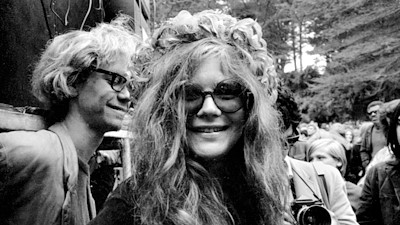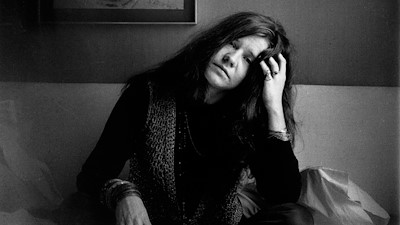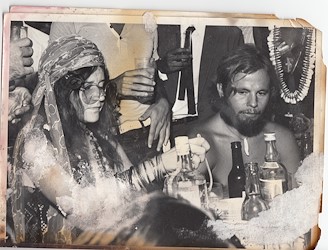Janis: Little Girl Blue
Amy Berg, USA, 2015o
Janis Joplin (1943-1970) was one of the most influential rock icons of the 1960s, the decade which went down in history as a time of great uprisings and revolts, hopes and illusions. Little Girl Blue recounts her excessive life through rich material and the numerous letters she wrote to her family, friends and lovers of both sexes. In addition to Joplin's legendary temperament and her unconditional devotion to music, the soft side of the rocker comes to the fore – as well as the fact that her early death by overdose was not as unavoidable as often claimed later on.
Filmmaker Amy Berg’s deeply sympathetic documentary about Janis Joplin – a singer whose shredded wail tapped reservoirs of pain – gets so much right, it feels like a major act of cultural excavation. We get a glimpse of the high-school-aged Janis’s report card (mostly Cs and Ds) and a thorough sense of the tomboy rebel who found her way to San Francisco’s hippie scene. Joplin’s flower-girl mystique is punctured by frustrated bandmates and lovers of both sexes. Best are her letters to home, voiced by Cat Power’s Chan Marshall, pushing us further inside a troubled head than most rock docs dare. As with recent films ‘Amy’ and ‘Kurt Cobain: Montage of Heck’, tragedy can’t help but loom. Still, Joplin’s drug use turns out to be more of a battle than you might have known. She’d already gotten hooked on heroin and kicked it before succumbing to loneliness (and a relapse). Berg relies too often on a shot of a train track receding, while her film tells a more complex story: Joplin wasn’t drawn inexorably to her fate but instead comes off like an adventurer with a sad, untamed spirit.
Joshua RothkopfDie Geschichte einer Schmerzensfrau, der Blues-Rock-Sängerin Janis Joplin, mit klassischen Dokumentarfilmmitteln gedreht - Szenen aus Homevideos, Bühnenauftritte, persönliche Erinnerungen von Sam Andrew, D.A. Pennebaker, Dick Cavett und vielen anderen -, aber unglaublich passioniert und intensiv. Alkohol, Drogen, Sex, Roadtrips, Woodstock, die ganzen Sechziger. Sie erleichtert uns, sagt die Filmemacherin Amy Berg, indem sie den Schmerz liebkost und annimmt, den jeder von uns in sich trägt.
Fritz GöttlerJanis Joplins Gesang gehorchte dem Gefühl bis in tiefste Trauer. Amy J. Bergs Dokumentation «Janis: Little Girl Blue» zeigt aber, dass die Sängerin ihre expressive Kraft auch aus Euphorie gewann. Mag sie bleibende Kränkungen erfahren und Einsamkeit mit Drogen ausgefüllt haben – man darf sie sich trotzdem als glückliche Musikerin vorstellen. Der Film wirkt manchmal blass, wird von der Musik förmlich übertönt. Montiert aus Konzertmitschnitten, Interviews und vielen Symbolbildern (mit Tauben, mit Zügen) zeigt er immerhin: Inspiriert von Soul, getragen von der Hippie-Welle, entwickelte sich Janis Joplin zur einzigartigen Rocksängerin, die Können und Erfolg genoss. Dass sie im Jahr 1970 mit 27 Jahren an einer Überdosis Heroin starb, war ein Unglück, kein Schicksal.
Ueli BernaysDocumentariste chevronnée, Amy Berg rend ici une copie appliquée, garnie comme il se doit d’images live et de témoignages décortiquant la saga d’une femme entière, incapable de surmonter ses démons, à rapprocher bien sûr de la non moins funeste destinée d’Amy Winehouse.
La RédactionIl y a presque une contradiction entre l’agencement méthodique des images documentaires et le sujet, qui relève de l’émotion pure, mais il est impossible de rester insensible à la puissance des performances publiques de la chanteuse, ni à la tragédie qui fut la sienne.
Gérard DelormeGalleryo











